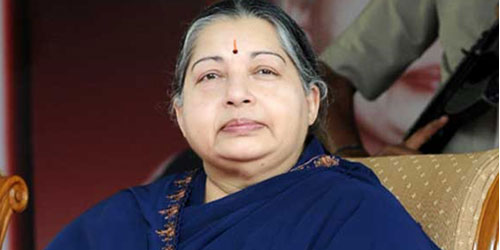
Chennai: It was a complaint by Subramanian Swamy in court in 1996 that resulted in an investigation against the chief ministers Tamil Nadu Jayalalithaa in what later became known as the "disproportionate assets case" in which he was convicted a court in Bangalore today.
The June 14, 1996, Subramanian Swamy, then leader of the Janata Party, filed a complaint with the chief judge of sessions here claiming that Jayalalithaa had assets disproportionate to his known sources of income. Swamy, was then president of the Janata Party, which has since merged with BJP.
The court ordered the Directorate of vigilance and anti-corruption wing to investigate the complaint.
Subsequently, a FIR was registered by police on September 18, 1996, and a probe was carried out, which also included the search and seizure procedures several locations including Hyderabad. A chargesheet was presented and examined witnesses.
Witnesses who were recalled in court after the AIADMK came to power in 2001 invited censorship after the Supreme Court.
He claimed that the value of the assets of Jayalalithaa increased to Rs 66.65 million rupees when I resigned the post in 1996 after a period of five years.
Before assuming the post of prime minister on July 1, 1991, the value of its assets was Rs 2.01 million rupees, it was claimed. Jayalalithaa had then declared he was drawing only re 1 as wages.
While Jayalalithaa was the first accused in the case, his aide Sasikala, her former foster son VN Sudhakaran and Ilavarasi J, a relative of Sasikala, are the other defendants.
The event, in its 18-year journey has seen many petitions submitted by questions involving defendants, including the law, procedures and relief in various courts, including the court, high courts Madras and Karnataka and the Supreme Court.
The case was transferred to Bangalore in 2003 by the Supreme Court on a petition by DMK leader K Anbazhagan that Swamy, himself impleaded in his capacity as the original complainant. Swamy also supported the transfer of cases from Tamil Nadu to a fair trial.
They had argued that the trial was not conducted in a free and fair manner if done in Tamil Nadu.
Transfer the case of Karnataka, a bank of apex court comprising Justice SN Variava and Justice HK Sema in its judgment of 18 November 2003 noted: "It seems that the new tax (named after the AIADMK government) is the hand the defendant creating a reasonable apprehension of likelihood of failure of justice in the minds of the general public. There is a strong indication that the process of justice is being subverted. free and fair trial is sine qua non of Article 21 of the Constitution. "






















